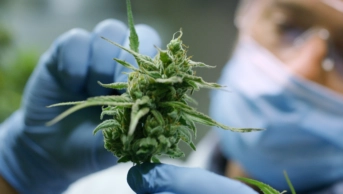
Shutterstock.com
The Medicines and Healthcare products Regulatory Agency (MHRA) says it has cleared backlogs in its regulatory processes for established medicines and marketing authorisations.
In January 2024, the regulator reported delays of more than 100 days for decisions on established medicines as of December 2023, with decisions taking an average of 333 days versus a statutory timescale of 210 days for UK, Great Britain and Northern Ireland marketing authorisation applications.
It also reported that, at the time, 1,167 national marketing authorisation applications were overdue.
However, in a statement published alongside data on 13 December 2024, the MHRA said it had eliminated the backlogs and was now assessing applications within expected timescales.
Regarding established medicines, it said: “We have eliminated our original backlog (set in January 2024) and continue to make progress to conclude assessment of the applications which have fallen overdue since this point.
“We are now assessing all new applications within expected timescales.”
The regulator added: “We have eliminated our original backlog of national marketing authorisation applications (concluding the assessment of 1,167 applications).”
In January 2024, the MHRA also reported delays in reliance routes, which is the procedure that allowed the MHRA to grant a licence, relying on approval in the EU. At the time, a decision took an average of 195 days, versus the statutory timescale of 67 days.
EU reliance routes were introduced as a temporary measure after the UK left the EU to allow applicants with a marketing authorisation from the EU to be fast-tracked through the UK approvals process.
The routes ended on 31 December 2023 and were replaced with the ‘International Recognition Procedure’ from 1 January 2024. The procedure has two routes, known as ‘recognition A’, which has a 60-day timetable, and ‘recognition B’, which has a 110-day timetable for approvals.
In its latest data, the MHRA reported: “International Recognition Procedure applications are concluding assessment within an average of 60 days for route A and within a maximum determination of 118 days for route B”.
The MHRA also reported data on clinical trials applications, saying that “clinical trials and investigations applications continue to be handled within statutory timescales”.
“Since September 2023, all clinical trial applications have been assessed within 30 days, with no backlogs,” it added.
“Regulatory assessments for clinical trials have been completed in an average of 28 days for initial assessments (within the statutory timescale of 30 days) and an average of 29 days for assessments of amendments (within the statutory timescale of 35 days).”
Legislation to speed up clinical trial approvals was laid in Parliament on 12 December 2024.
The ‘Clinical Trials Legislation’ will come into force after a 12-month implementation period.
Commenting on the data, Paul Fleming, technical director at the British Generic Manufacturers Association, said eliminating the backlog of new product licence approvals was “a really important milestone for our industry this year”.
He added: “This has been achieved by strong collaborative working between MHRA and industry. We need to maintain this going forward and ensure there is no return of delays. We also need to ensure there is an acceleration in approvals back to around 12 to 15 months for new generic medicines.
“Now the backlogs are out of the way, we also want to see uptake of the tailored biosimilar UK licencing pathway, which does not routinely require manufacturers to carry out confirmatory clinical trials.
“This should speed up approvals by around a year and could be critical in getting these important medicines to patients more quickly. Over the next five years, there is a growing pipeline of biosimilar launches planned, so this pathway will be vital.”


